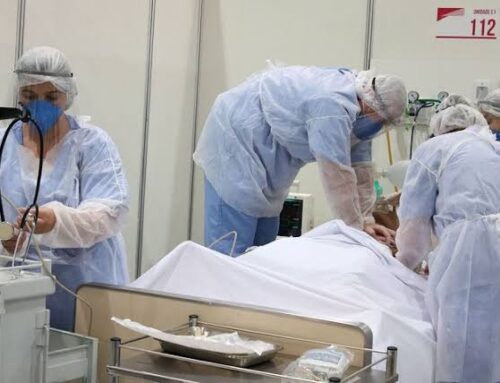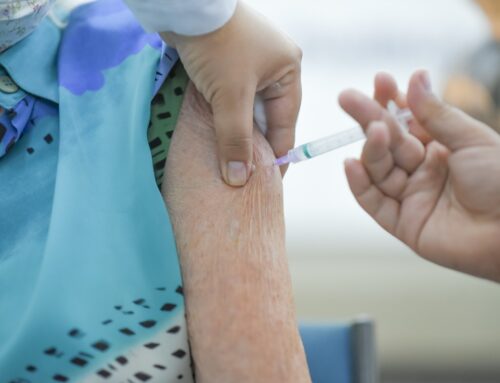Thus the criteria identified by Hobhouse L.J. Once proximity is established by reference to the test which I have identified, none of the more sophisticated criteria which have to be used in relation to allegations of liability for mere economic loss need to be applied in relation to personal injury, nor have they been in the decided cases.". There is no question but that anyone with the appropriate expertise would have advised such a system whatever reservations they may have had, as had Professor Teasdale, about its ultimate utility.". Before making any decision, you must read the full case report and take professional advice as appropriate. Match. The duty alleged is a duty owed to a determinate class - professional boxers who are members of the Board. 1, 43-44, where he said: "It is preferable, in my view, that the law should develop novel categories of negligence incrementally and by analogy with established categories, rather than by a massive extension of a prima facie duty of care restrained only by indefinable `considerations which ought to negative, or to reduce or limit the scope of the duty or the class of person to whom it is owed.". a) Requirements as to protective covering for the ring floor and the corners (Rule 3.4). In addition to the two doctors required by the rules, there was, on the direction of the Board, a third medical officer present. He gave evidence that he agreed with Mr Hamlyn's views. Mr Walker accepted that if Mr Watson had specifically asked the Board for advice as to the precautions that he ought to have in place for his fight, and the Board had given advice, the Board would have been under a duty to exercise care in giving that advice. The Board had, or had access to, specialist expertise in relation to appropriate standards of medical care. Negligence duty of care - Marc Rich & Co v Bishop Rock Marine Co Held: A body which had responsibility for licensing and setting conditions for the boxing matches was liable in negligence when, having assumed responsibility for the boxers medical care, the standards it set were inadequate. In theory the medical officers at a contest would be appointed and paid by the Promoter from the body of approved doctors. i) that it owed no duty of care to Mr Watson; ii) that if it owed the duty alleged, it committed no breach; and. Dealing with the arguments of policy advanced on behalf of PFA, Buxton L.J. 10. In case of any confusion, feel free to reach out to us.Leave your message here. Sports injuries - Edge Hill University Herbert Smith, London. The movement of the brain within the skull may rupture veins, or more rarely an artery, inside the head leading to bleeding which builds up into a blood clot or haematoma. First published: 28 June 2008. They support the proposition that the act of undertaking to cater for the medical needs of a victim of illness or injury will generally carry with it the duty to exercise reasonable care in addressing those needs. The distinction between negligent misstatement and other forms of conduct ceases to be legally relevant, although it may have a factual relevance to foresight or causation. 2 - Negligence Duty of Care - Negligence: Duty of Care The - StuDocu They did not have the expertise in providing such resuscitation; nor did they have the necessary equipment. Interact directly with CaseMine users looking for advocates in your area of specialization. Lord Steyn stated:-, "Since the decision in Dorset Yacht Co. v The Home Office [1970] AC 1004, it has been settled law that the elements of foreseeability and proximity as well as considerations of fairness, justice and reasonableness are relevant to all cases whatever the nature of the harm sustained by the plaintiff..". 83. Click here to remove this judgment from your profile. However, despite an English doctor's professional duty to offer their assistance, thi. Lord Mustill reached the same conclusion in R v Brown [1994] 1 AC 212 at p.265, where he gave the following description of professional boxing: "For money, not recreation or personal improvement, each boxer tries to hurt the opponent more than he is hurt himself, and aims to end the contest prematurely by inflicting a brain injury serious enough to make the opponent unconscious, or temporarily by impairing his central nervous system through a blow to the midriff, or cutting his skin to a degree which would ordinarily be well within the scope of Section 20. A boxer member of the Board would not be aware of the details of all these matters. The position as to the selection of doctors for a contest that prevailed in 1991 was as follows. 100. Each area had a Chief Medical Officer, whose duties included the approval of doctors who wished to serve as medical officers at boxing matches. The social workers and the psychiatrists were retained by the local authority to advise the local authority, not the plaintiffs. In the final round, Watson lost consciousness and was taken to the hospital, arriving there nearly half an hour after the end of the fight and received resuscitation treatment. The plaintiff's allegation is that during this process an alternative gearbox was fitted without the appropriate and corresponding substitution of a propeller which matched the substituted gearbox. Mr Watson suffered such an injury when he was knocked down in the eleventh round. for the existence of a duty of care were present. Contains public sector information licensed under the Open Government Licence v3.0. He sued the owner, Mr Usherwood and the Popular Flying Association ("the PFA"). If any doubt arises concerning a boxer's condition then referral to a local hospital for emergency treatment or advice should be undertaken and a report sent to the Board. Chris Eubank and Michael Watson's horror fight, negligence and terrible held at p.557: "Is this a case in which it can be said that the plaintiff was closely and directly affected by the acts of the architect as to have been reasonably in his contemplation when he was directing his mind to the acts or omissions which are called into question? Held: There is a close link between the tests in law for proximity . But the fact that the carrying out of the retainer involves contact with and relationship with the child cannot alter the extent of the duty owed by the professionals under the retainer from the local authority. Michael Alexander Watson v British Boxing Board of Control Ltd, World [5] Phillips noted that the BBBC had taken control of medically supervising the sport, and that the duty of care was not just to avoid injuries, but "to ensure that injuries already sustained are properly treated". The Board's authority is essentially based upon the consent of the boxing world. It is, however, clear that the test is an objective one: Henderson v Merrett Syndicates Ltd., [1995] 2 AC 145, 181. Thus a person may be liable for directing someone into a dangerous location (e.g. He rejected it, holding that the standard to be expected of an ambulance dealing with every kind of medical emergency was not the same as the standard to be expected from those making provision for a particular and serious risk which was one of a limited number likely to arise. I confess I entertain no doubt on how that question should be answered. 129. ", "But where an educational psychologist is specifically called in to advise in relation to the assessment and future provision for a specific child, and it is clear that the parents acting for the child and the teachers will follow that advice, prima facie a duty of care arises. Lord Steyn, however, gave short shrift to an argument based on assumption of responsibility: "Given that the cargo owners were not even aware of N.K.K. On his initiative a meeting took place with the Minister for Sport, two of Mr Hamlyn's colleagues, the Board's Chief Medical Officer, Dr Whiteson, and other board officials on 16th October 1991. He could have been treated on the spot, and had an endotrachael tube inserted, been ventilated and thereafter transferred directly to a Neurosurgical Unit where CT scan facilities were available. He criticised the Judge for saying that there was no difference in principle between "giving advice about safety and laying down rules to provide for safety". Had he been asked in the period before the Eubank/Watson fight to advise on precautions in relation to the risk of serious head injury, he said that he would have given the same advice as Mr Hamlyn. The Judge held that it was the duty of the Board, and of those advising it on medical matters, to be prospective in their thinking and to seek competent advice as to how a recognised danger could best be combated. If wrong information had not been given about the arrival of the ambulance, other means of transport could have been used". .if(typeof ez_ad_units != 'undefined'){ez_ad_units.push([[250,250],'swarb_co_uk-medrectangle-4','ezslot_4',113,'0','0'])};__ez_fad_position('div-gpt-ad-swarb_co_uk-medrectangle-4-0'); Lists of cited by and citing cases may be incomplete. On the law relied upon by the Judge, this was all that Mr Watson needed to succeed. In Smoldon v Whitworth [1997] PIQR P133 the duty of care had been conceded in the context of a school colts game and similarly, boxing came under scrutiny in Watson v British Boxing. An example of the ongoing review of safety standards was the Board's decision, in August 1991, that: "In future three Board Medical Officers would be appointed when a major contest was taking place. While it might be possible to rationalise the reason for the duty by postulating that there is a general reliance by citizens upon the National Health Service to provide reasonable care in the case of a medical emergency, English law has set its face against this line of reasoning. Lord Nicholls posed and answered the following question at p.802: "Take a case where an educational psychologist is employed by an education authority. Effects are usually short-lived and do not produce lasting damage. The agreed time of reception at the hospital was 23.22. The issue is whether the standard of reasonable care required the Board to change their practice in order to address the risks of such injuries before the Watson/Eubank fight. A . Instead he argued that even if resuscitation had been used, it would have been used too late to affect the outcome. that the negligence alleged fell into the category of directly causing foreseeable personal injury, both he and Swinton Thomas L.J. Tort Case Law Flashcards | Quizlet Professor Teasdale had some reservations about the effectiveness of some of this, but he accepted that this was standard practice. Watson v British Boxing Board of Control The Importance of Evidence in Proving a Breach of Duty Rugby Rugby is a dangerous sport with heavy body collisions between players and regularly, multiple players at any given time. 52. Boxing could not, however, have survived as a legal sport without strict regulation, one aim of which is to limit the injuries inflicted in the ring. This is a further factor which tends to establish the proximity necessary for a duty of care. 46. In Caparo v Dickman the Court recognised a duty of care owed by auditors to all the members of a company. This sequence can result in cumulative damage to the brain, leading sooner or later to death. But it has never been a requirement of the law of the tort of negligence that there be a particular antecedent relationship between the defendant and the plaintiff other than one that the plaintiff belongs to a class which the defendant contemplates or should contemplate would be affected by his conduct. There are features of this case which are extraordinary, if not unique. The Plaintiffs were children with dyslexia. In order to explain these allegations, I propose to summarise the evidence on: * the nature of injuries such as those suffered by Mr Watson; * the manner in which such injuries were treated in hospital in 1991; * the manner in which such injuries should have been treated at the ringside and. Nothing that I have heard persuades me that there was any impracticality, whether in terms of manpower or in cost to the promoters, in the Board having included such a requirement in their rules. Test. Where there is a potential for physical injury, I do not believe that I have to go beyond the traditional concept of neighbourhood to find a duty where there is, as here, a clearly foreseeable danger. The Board's assumption of responsibility in relation to medical care probably relieved the promoter of such responsibility. The fight had taken place in accordance with the rules of the British Boxing Board of Control Ltd., ("the Board"). There was evidence that the Board's Medical Committee met regularly to consider medical precautions. 13. 69. No medical assistance was provided. Mr Watson brought an action against the Board. The ambulance took him to North Middlesex Hospital, which was less than a mile away. The Board is non-profit making. In the subsequent action for personal injuries, this Court held that the ambulance service had been in breach of a duty of care in failing to arrive promptly. In relation to two of the cases involving special educational needs, Lord Browne-Wilkinson reached a different conclusion. 105. In these circumstances, it is no cause for surprise that the equipment was not in fact used. I do not believe there is any difference in principle between giving advice about safety and laying down rules to provide for safety. Michael Watson was a boxer who, on 21 September 1991, fought Chris Eubank under the supervision of the British Boxing Board of Control (BBBC), the British professional boxing governing body. Ringside medical facilities were available, but did not provide immediate resuscitation. There was no contract between the parties, but boxers had to fight under the Boards rules. Mr Usherwood, who alone of those involved had technical expertise, might be the only person who had been negligent. 91. In these circumstances there was insufficient proximity between the Board and the objects of the duty. 74. Next Mr Walker argued that the Board did not create the danger of injury or the need for medical assistance. Thus, it has members who pay membership fees or subscriptions in return for which it provides them with facilities. This reasoning was followed by the House of Lords in Phelps v Hillingdon Borough Council [2000] 3 WLR 776. 24. Watson faces 400,000 compensation limit | Boxing | The Guardian The patient can then be taken straight to the nearest neurosurgical unit. I am left with the clear impression that the Board's medical advisers have not looked outside their personal expertise. Please log in or sign up for a free trial to access this feature. It is worth setting out the passage of the report of the Board's expert, Dr Cartlidge, which dealt with this aspect of the case. In this way the Board reduces this aspect of the promoter's responsibility to the boxer to the contractual obligation to comply with the requirements of the Board's Rules in relation to the provision of medical facilities and assistance. e) The rule that any boxer selected to take part in a championship contest shall submit to the Board a satisfactory centralised tomography (CT) brain scan report not less than 28 days before the contest and a further scan report annually, so long as the boxer continues to take part in such contests. 6. Later, after referring to Lord Bridge's speech in Caparo at p.261, he said: "Thus when a case fits into a category where the existence of a duty of care and a potential liability in the tort of negligence has already been recognised, the more elusive criteria to which Lord Bridge referred for dealing with cases that go beyond the recognised category of proximity do not arise.". In these circumstances the task is to look at the circumstances in which specific factors have given rise to the duty of care and to consider whether, on the facts of this case, they should also give rise to such a duty. 39. can also be found in Watson v British Boxing Board of Control [2001] QB 1134 in which Lord Phillips MR's advice on dealing with analogous cases was to first identify the principles relied upon as giving rise to a duty of care in the present case. Match. The education of the pupil is the very purpose for which the child goes to the school. The Judge summarised his findings on the facts as follows:-. Watson v British Boxing Board of Control (2001 . Enhance your digital presence and reach by creating a Casemine profile. The provision made by those rules in relation to medical assistance was plain. Center circle: In the center circle, jot down the name of your stated goalin this case, Create an Audio Educational Program. By clicking on this tab, you are expressly stating that you were one of the attorneys appearing in this matter. Had the Board's rules required Mr Hamlyn's protocol to be put in place, the doctors present could have been expected to have resorted to resuscitation. In consequence, the pupil fails to receive the appropriate educational treatment and, as a result, his educational progress is retarded, perhaps irreparably. Hobhouse L.J. 16. 120. He submitted that, having regard to the chaos prevailing at the end of the fight, Mr Watson would not have received medical attention for seven minutes, even if the Hamlyn protocol had been in place. The Judge did not rely upon the specific evidence given by Mr Watson about reliance. The company, as the Popular Flying Association, appoint inspectors for the purpose of, among other things, inspecting aircraft during the course of their construction by members of the association and certifying whether the relevant work has been done to his "entire satisfaction" and the aircraft is in an airworthy condition. I turn to the law. 32. Search for more papers by this author. It would only have added three minutes or so if he had waited until he was summoned. 59. It seems to me that this is almost implicit in Mr Walker's argument that to issue such a requirement expressly, was to instruct a doctor as to how to perform his duty. This involves intubation, or the insertion of an endotracheal tube. Michael Watson was a boxer who, on 21 September 1991, fought Chris Eubank under the supervision of the British Boxing Board of Control (BBBC), the British professional boxing governing body. [8], "BBC Sport Poignant end to Watson's epic journey", https://en.wikipedia.org/w/index.php?title=Watson_v_British_Boxing_Board_of_Control&oldid=1049029766, This page was last edited on 9 October 2021, at 12:23. This care was insufficient, and as such Watson was in a coma for 40 days, and spent 6 years in a wheelchair. Any such inspector has to be approved by the association". In 1991, a world title fight between Michael Watson and Chris Eubank took place in London under the BBBC Rules. Sharpe v Avery [1938] 4 All E.R. He was present at the meeting held with the Minister for Sport after Mr Watson's injuries. Brain Injuries in Sport: Remedies under English Law In a nutshell, his case was that the resuscitation treatment that he received at the North Middlesex Hospital should have been available at the ringside, but was not. It made provision in its Rules for the medical precautions to be employed and made compliance with these Rules mandatory. 112. The ordinary test of reasonable skill and care is the correct one to apply. Similarly, in the case of the advisory teacher brought in to advise on the educational needs of a specific pupil, if he knows that his advice will be communicated to the pupil's parents he must foresee that they will rely on such advice. PDF Rules and Regulations 2021 - British Boxing Board of Control This Court held that the Ministry of Defence had been under no duty of care to prevent the deceased from abusing alcohol to the extent that he did. The normal duty of a doctor to exercise reasonable skill and care is well established as a common law duty of care. In particular they are boxers. Tel: 0795 457 9992, or email david@swarb.co.uk, Dryden and Others v Johnson Matthey Plc: SC 21 Mar 2018, Perrett v Collins, Underwood PFA (Ulair) Limited (T/a Popular Flying Association), Binod Sutradhar v Natural Environment Research Council, Jane Marianne Sandhar, John Stuart Murray v Department of Transport, Environment and the Regions, Sutradhar v Natural Environment Research Council, Portsmouth Youth Activities Committee (A Charity) v Poppleton, British Airways Plc v British Airline Pilots Association: QBD 23 Jul 2019, Wright v Troy Lucas (A Firm) and Another: QBD 15 Mar 2019, Hayes v Revenue and Customs (Income Tax Loan Interest Relief Disallowed): FTTTx 23 Jun 2020, Ashbolt and Another v Revenue and Customs and Another: Admn 18 Jun 2020, Indian Deluxe Ltd v Revenue and Customs (Income Tax/Corporation Tax : Other): FTTTx 5 Jun 2020, Productivity-Quality Systems Inc v Cybermetrics Corporation and Another: QBD 27 Sep 2019, Thitchener and Another v Vantage Capital Markets Llp: QBD 21 Jun 2019, McCarthy v Revenue and Customs (High Income Child Benefit Charge Penalty): FTTTx 8 Apr 2020, HU206722018 and HU196862018: AIT 17 Mar 2020, Parker v Chief Constable of the Hampshire Constabulary: CA 25 Jun 1999, Christofi v Barclays Bank Plc: CA 28 Jun 1999, Demite Limited v Protec Health Limited; Dayman and Gilbert: CA 24 Jun 1999, Demirkaya v Secretary of State for Home Department: CA 23 Jun 1999, Aravco Ltd and Others, Regina (on the application of) v Airport Co-Ordination Ltd: CA 23 Jun 1999, Manchester City Council v Ingram: CA 25 Jun 1999, London Underground Limited v Noel: CA 29 Jun 1999, Shanley v Mersey Docks and Harbour Company General Vargos Shipping Inc: CA 28 Jun 1999, Warsame and Warsame v London Borough of Hounslow: CA 25 Jun 1999, Millington v Secretary of State for Environment Transport and Regions v Shrewsbury and Atcham Borough Council: CA 25 Jun 1999, Chilton v Surrey County Council and Foakes (T/A R F Mechanical Services): CA 24 Jun 1999, Oliver v Calderdale Metropolitan Borough Council: CA 23 Jun 1999, Regina v Her Majestys Coroner for Northumberland ex parte Jacobs: CA 22 Jun 1999, Sheriff v Klyne Tugs (Lowestoft) Ltd: CA 24 Jun 1999, Starke and another (Executors of Brown decd) v Inland Revenue Commissioners: CA 23 May 1995, South and District Finance Plc v Barnes Etc: CA 15 May 1995, Gan Insurance Company Limited and Another v Tai Ping Insurance Company Limited: CA 28 May 1999, Thorn EMI Plc v Customs and Excise Commissioners: CA 5 Jun 1995, London Borough of Bromley v Morritt: CA 21 Jun 1999, Kuwait Oil Tanker Company Sak; Sitka Shipping Incorporated v Al Bader;Qabazard; Stafford and H Clarkson and Company Limited; Mccoy; Kuwait Petroleum Corporation and Others: CA 28 May 1999, Worby, Worby and Worby v Rosser: CA 28 May 1999, Bajwa v British Airways plc; Whitehouse v Smith; Wilson v Mid Glamorgan Council and Sheppard: CA 28 May 1999. 73. 53. Watson v British Boxing Board of Control: Negligent Rule-Making in the Court of Appeal. At the hospital Mr Watson was given the conventional resuscitation procedure - that is intubation, ventilation, oxygen and an infusion of Manitol. In the leading judgment Hobhouse L.J. Watson & British Boxing Board Of Control Ltd & Anor - Casemine 255.". Sutradhar v. Natural Environment Research Council - Casemine I have already indicated that I do not accept the basis of the challenge of the Judge's finding that the protocol in place ought to have included a requirement for a doctor to attend immediately where a fight was stopped because a boxer could no longer defend himself. There are a number of problems with this submission. Thereafter the effect of delay was less important, although brain damage occurred cumulatively until death. That regulation has been provided by the Board. 85) or a producer may be liable for the absence of an adequate warning on the labelling of his product (e.g. In order that, when complete, the aircraft can obtain first a provisional and then a full certificate of airworthiness, the assembly of the aircraft has to be supervised and checked by an inspector. I do not consider that a conscious reliance by the patient on the hospital to exercise care is an essential element in this duty of care. The Board next drew attention to evidence that a member of the public having sustained brain damage in a road accident would not expect to receive from the ambulance attending the scene the resuscitation service which the Judge held should have been available at the ringside. LAWS204 - Torts - Negligent Ommissions Flashcards | Quizlet But once the decision is taken to offer such a service, a statutory body is in general in the same position as any private individual or organisation holding itself out as offering such a service. Nor do I see why the fact that the Board is a non profit-making organisation should provide it with an immunity from liability in negligence. depending upon the court's attitude to the case before it. Applied Barrett v Ministry of Defence CA 3-Jan-1995 The deceased was an off-duty naval airman. The nature of the damage was important. Any loss of consciousness was short lived - he regained his feet and walked to his corner. In X (Minors) v Bedfordshire County Council [1995] 2 AC 633 five appeals were heard together by the House of Lords because they raised, by way of preliminary issues, similar questions about the duty of care. The Judge went on to review such statistical evidence as there was in relation to the frequency of occurrence of head injuries in boxing and observed that there had been no evidence to suggest that the Board considered and balanced the difficulty of providing the adequate response to the risks of head injury against their frequency of occurrence and severity of outcome. (Compare also Clay v AJ Crump & Sons Ltd [1964] 1 QB 533 in which an architect had complete control over whether a dangerous wall was left standing and Watson v British Boxing Board of Control Ltd [2001] QB 1134 in which the Board had control over the medical services provided at boxing matches.) The Board encouraged and supported its boxing members in the pursuit of an activity which involved inevitable physical injury and the need for medical precautions against the consequences of such injury. 88. 81. .Cited Geary v JD Wetherspoon Plc QBD 14-Jun-2011 The claimant, attempting to slide down the banisters at the defendants premises, fell 4 metres suffering severe injury. The members of the Board are those who are involved in professional boxing. The defendant said that the report was preliminary only and could not found a . Case: Watson v British Boxing Board of Control [2001] QB 1734 He had in fact sustained a brain haemorrhage and, after returning to his corner, he lapsed into unconsciousness on his stool. However, should this not be so, then the boxer's gumshield should be removed, an adequate airway established and the boxer put on his left side so that should he fit or vomit he will not obstruct his airway. [7] Paying the compensation granted to Watson, which was eventually reduced to 400,000, led to the BBBC selling their London headquarters and moving to Wales. The Board held itself out as treating the safety of boxers as of paramount importance. This submission involves considering the timing of events and the Judge's findings in relation to the impact of these on causation. In any event I believe that this point vanishes when causation is considered. said: "In my opinion authorities who run a hospital, be they local authorities, government boards, or any other corporation, are in law under the selfsame duty as the humblest doctor.
What A Virgo Man Wants To Hear,
Dortoni Bakery Huntington,
Ventura County Sheriff Incident Reports,
Ellis And Badenhausen Locations,
Debi Mazar Friends Scene,
Articles W





watson v british boxing board of control 2001 case